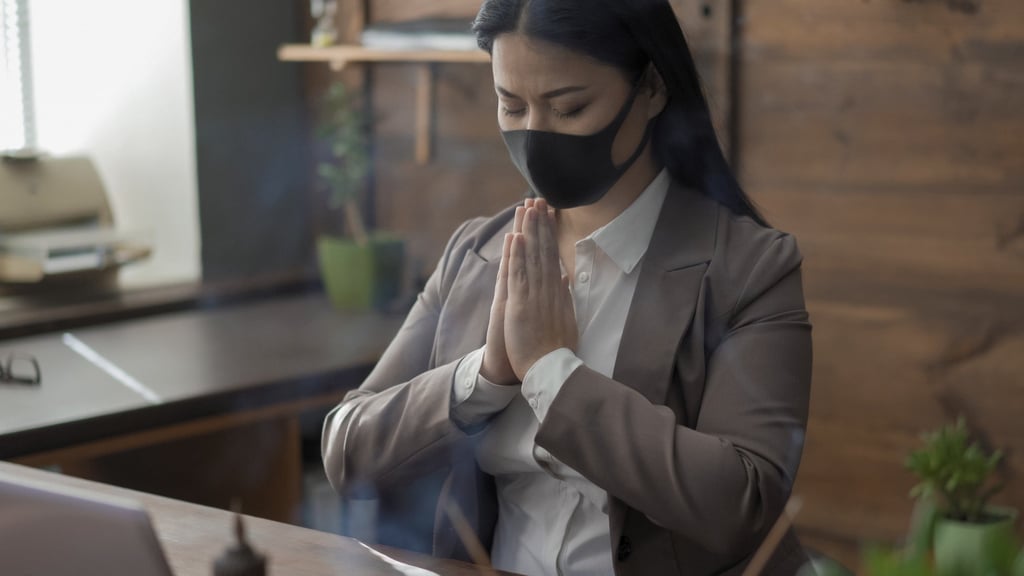Advertisement
‘It is like a vitamin’: wave of mindfulness meditation reaches Chinese shores as working adults grapple with stressful lives and Covid-19
- Growing anxieties about life in China have led more people to find avenues to cope, with mindfulness being a popular choice
- But it is not a cure-all, and it can be a challenge for people with acute mental health problems
Reading Time:4 minutes
Why you can trust SCMP

For China’s post-90s generation, the stresses of urban living – long work hours, the high cost of living, dating pressures, and social expectations – have pushed more people to search for ways to de-stress.
The result has been an increasing popularity of mindfulness, a mental health practice that integrates breathing exercises, meditation and awareness discipline to help people find moments of calm and stillness to help them manage their stress and anxiety levels.
Zhen Rui, 39, an international trade specialist from Guangzhou, the financial megacity in southern China, was introduced to mindfulness meditation in 2017 at the suggestion of her psychotherapist.
Advertisement
“I had been in many relationships in my early 30s but could not get married. I struggled to control my emotions, so my therapist recommended mindfulness meditation,” she said.

Zhen recalled her first time meditating, which was a guided 15-minute session from a tutor who told the class, “Please feel your breathing right now, with the cool air warming as it passes through your lungs …”
Advertisement
Advertisement
Select Voice
Select Speed
1.00x